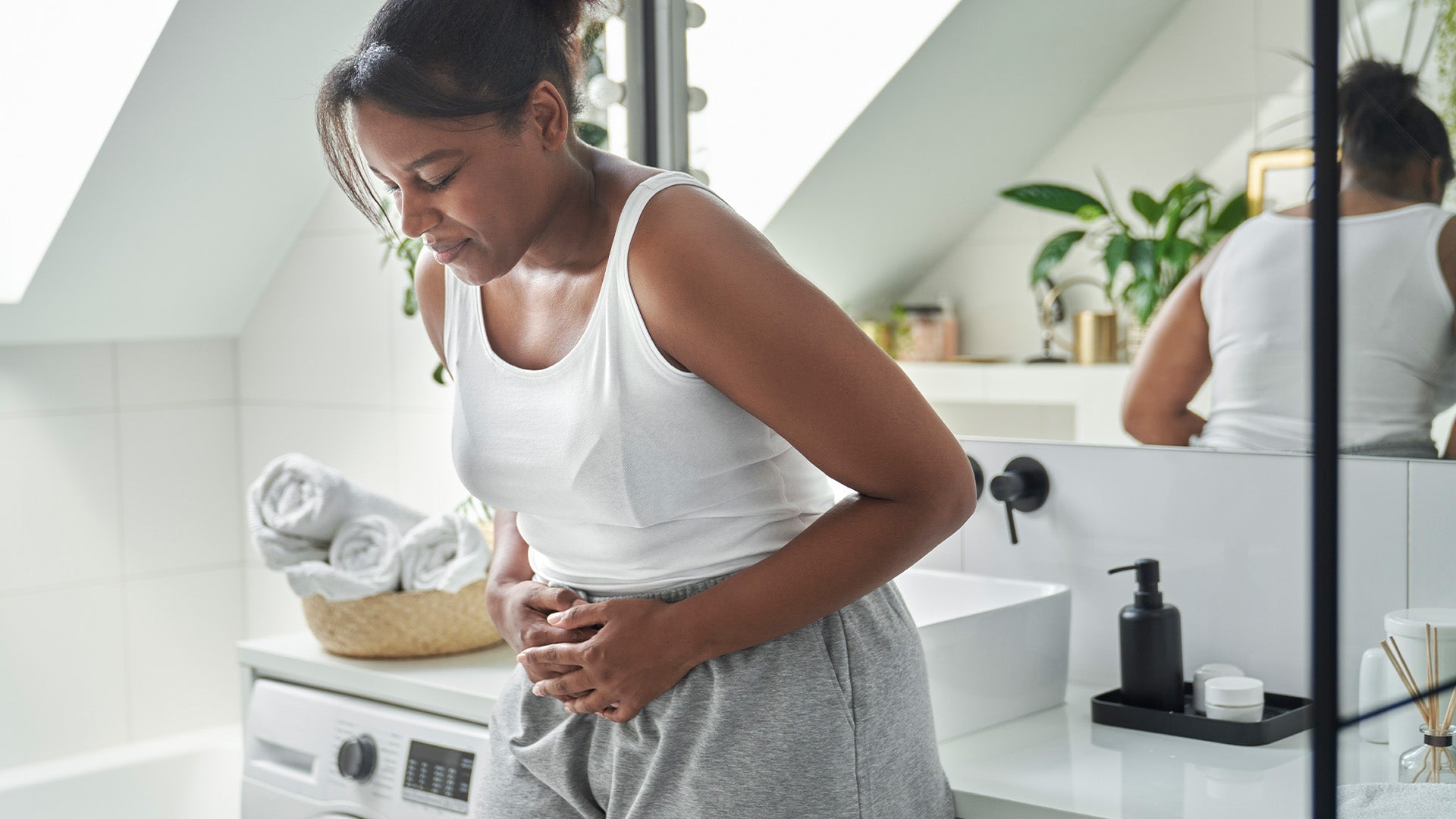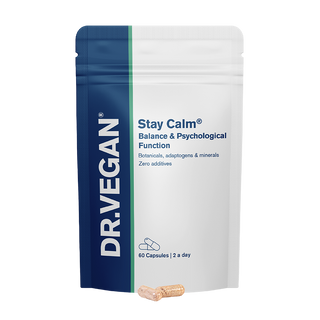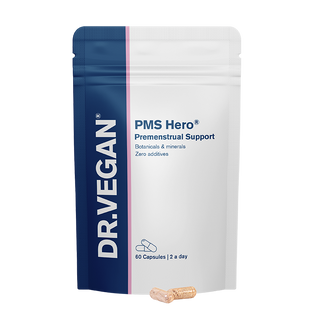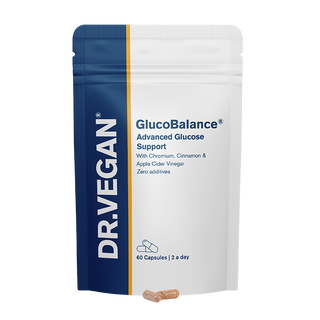Which PMS type are you?

Pre-menstrual symptoms, including cravings, weight gain, mood swings, anxiety or depression, provide a window into your health and the chance to support your hormonal balance. Expert nutritionist Dora Walsh talks PMS and nutrition tips to help relieve symptoms of your period. You may also enjoy reading 'New customer survey: The surprising life impacts of PMS'.
What is PMS (premenstrual syndrome)?
About 75% of women experience PMS at some time before menopause. PMS includes a group of physical, psychological and emotional symptoms that many women experience up to two weeks prior to their menstrual period. The symptoms disappear soon after the start of menstrual bleeding. Learn more about the 'Common symptoms of PMS' or signs of a healthy period.
If a woman has symptoms that don’t stop shortly after her period starts, it may be a sign of other conditions, such as depression. You may be interested in reading the causes, common symptoms and best treatments for endometriosis.
Which PMS type are you?
Dr. Guy Abraham, M.D., a research gynaecologist and endocrinologist, developed a system of 4 categories for the different types of symptoms of PMS, suggesting that each category is caused by its own hormonal imbalance (1).
Some women find GE Abraham’s categories make sense for them, while others may suffer their own unique and group of symptoms from each of the 4 groups, with varying levels and regularity.
PMS-A: Anxiety
This is the most common type of PMS, with symptoms including mood swings, irritability, anxiety and tension. The suggested cause is an imbalance of oestrogen (too high) and progesterone (too low).
Consume Vitamin B6-rich foods such as sunflower seeds, wheatgerm, oats and bananas to support progesterone levels. The herb Agnus Castus Extract (Chaste Berry) has also traditionally been used for PMS and helping raise progesterone levels.
PMS-C: Cravings
Symptoms include cravings for sweets, an insatiable appetite, fatigue and headaches. The suggested cause of PMS-C is high levels of insulin during the first half of your cycle and problems with glucose tolerance (blood sugar balance).
You can help balance your blood sugar with good protein sources such as tempeh, tofu, and lean meat (if you're not plant-based or vegan). Add healthy fats like avocado, as well as complex carbohydrates like whole oats or whole wheat. Avoid refined carbohydrates, sweets and confectionary. Discover the best sources of protein on a plant-based diet.
PMS-H: Hyper-hydration (water retention swelling)
Symptoms include weight gain, water retention swelling, and breast tenderness. This is known as hyper-hydration and it’s less than pleasant when your clothes are too tight and your breasts feel tender. The suggested cause is too much aldosterone from the adrenal gland which acts on the kidneys to regulate water balance.
If you're PMS-H, watch your sodium intake and try to consume diuretic foods like celery, cucumber and parsley, which can help your body get rid of water retention. You may also like to read: Nutrition for PMS symptoms
PMS-D: Depression
Ever feel like you’re crying your eyes out for no reason? PMS-D comes with symptoms like depression, crying and confusion, with the suggested cause being low oestrogen, too much progesterone and low serotonin (the feel-good hormone).
If you're PMS-D, try to eat tryptophan-rich foods because this amino acid is involved in the formation of the feel-good hormone serotonin. Tryptophan-rich foods include almonds, avocado and soy milk which is commonly regarded as the best plant-based milk.
PMDD: Extreme PMS symptoms
Extreme PMS symptoms are classified as PMDD (premenstrual dysphoric disorder) where symptoms can affect daily life and make it hard to maintain relationships (2).
Hormone balancing tips for PMS
Balance your blood sugar
Balancing your blood sugar levels through your period is important. Eat a balance of complex carbohydrates such as wholegrains, protein such as tofu or tempeh, good fats including avocado and olives. Avoid refined sugar. Also consider taking GlucoBalance®, a plant-based supplement to manage blood sugar levels, protecting against the highs and lows of blood sugar.
Consume healthy fats
One small handful of raw nuts and seeds each day provides a great source of healthy fats.
Support your liver health
Add cruciferous vegetables to your diet, including broccoli, cabbage and Brussels sprouts, to support your liver health and the natural purification of your liver.
Avoid xenoestrogens in your diet and lifestyle
Xenoestrogens are hormone-disrupting chemicals found in plastic, skin care products, building supplies and pesticides.
Always check the label of your body care and beauty products to make sure they don't include common xenoestrogens, including 4-MBC (sunscreen lotions), parabens, including methylparaben, ehtylparaben, propylparaben, commonly used as a preservative in skincare products, and benzophenone, often used in sunscreen lotions.
You may also like to read:
- Nutrition for PMS symptoms
- How your gut and vagina are linked
- What is Bacterial Vaginosis?
- How to prevent a UTI
If you are unsure whether your diet is supporting you, try our free online Diet Profile which takes only 3 minutes and provides a window into your diet and any nutrients you may be missing out on.
If you're looking for relief from common PMS symptoms, try PMS Hero®, our naturally sourced and plant-based PMS supplement to help relieve common symptoms of PMS so you can get on with your days and thrive.
---
Dora Walsh is a Registered Nutritional Therapist mBANT CNHC and Registered Nutritionist mBANT. She runs Nutriheal, specialising in nutritional therapy and lifestyle medicine for women's various health concerns, hormonal health and weight management.
References
1. Abraham GE (1983). Nutritional Factors in the aetiology of the pre-menstrual tension syndrome. Journal of Reproductive Medicine, vol 28, no 7, pp 446-64.
2. Rogerio A. Lobo, JoAnn Pinkerton (2010), Premenstrual Syndrome (PMS) and Premenstrual Dysphoric Disorder (PMDD), The Journal of Clinical Endocrinology & Metabolism, Volume 95, Issue 4, p. E1




















